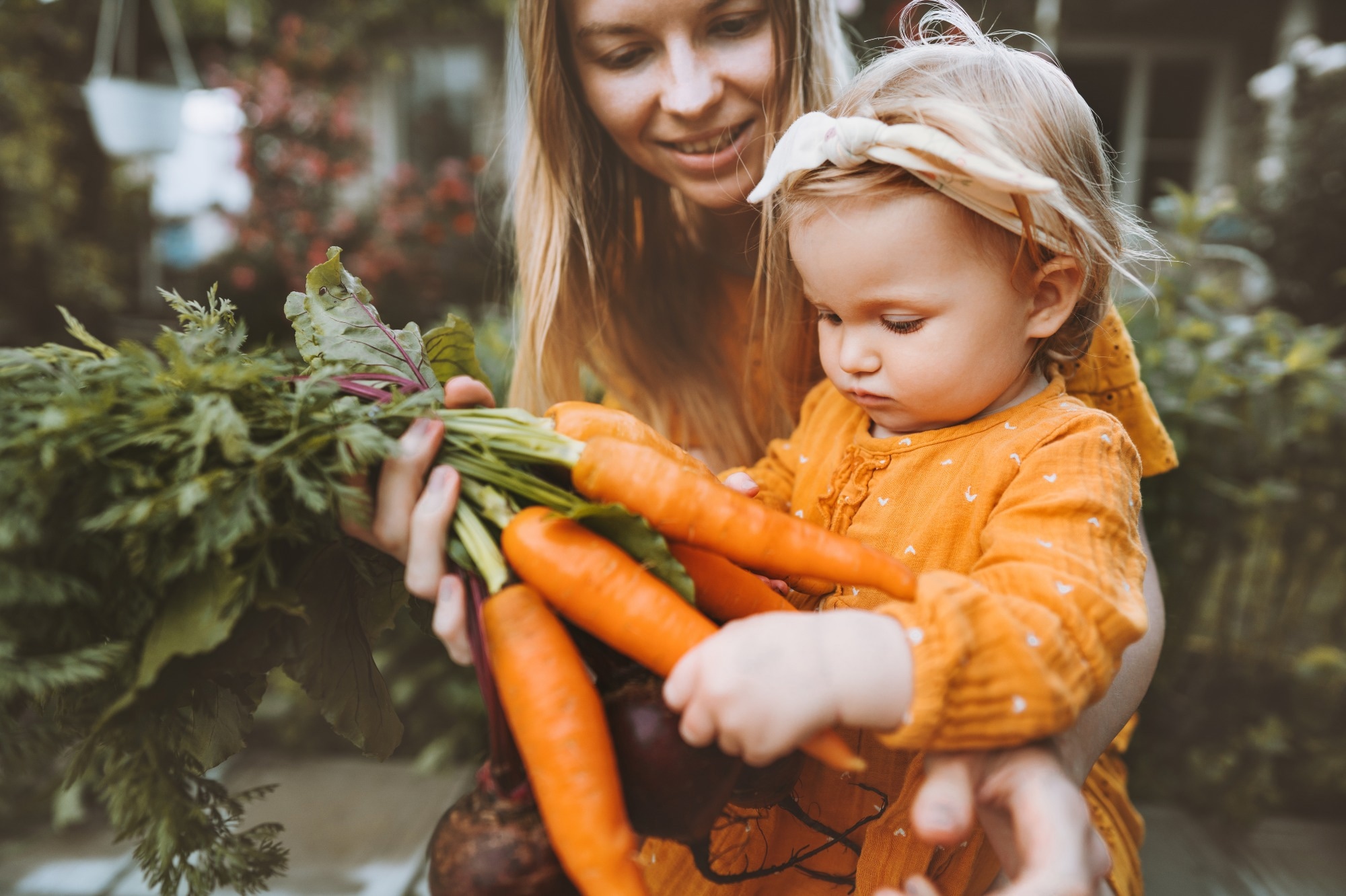In a recent study published in Nutrients, researchers discuss the development, implementation, and results of a hands-on program called Cooking With Seasons for Health (CwS4H). During CwS4H, parent-child dyads were involved in sessions that included nutrition lessons, cooking lessons for children, food tasting, meal preparations, and distribution of fresh produce and food guides.
 Study: Cooking with the Seasons for Health (CwS4H): An Innovative Intervention That Links Nutrition Education, Cooking Skills, and Locally Grown Produce to Increase Vegetable Intake among Limited-Resource Parent-Child Dyads in Rural Washington. Image Credit: everst / Shutterstock.com
Study: Cooking with the Seasons for Health (CwS4H): An Innovative Intervention That Links Nutrition Education, Cooking Skills, and Locally Grown Produce to Increase Vegetable Intake among Limited-Resource Parent-Child Dyads in Rural Washington. Image Credit: everst / Shutterstock.com
Background
Obesity is a growing health concern across the developed world. Importantly, the burden of obesity and overweight among children, as well as that of other chronic diseases, is disproportionate and greater among those from marginalized populations and families from rural areas with limited resources. Moreover, nutrition and diet-associated behaviors that have been established during childhood increase the risk of various chronic diseases in adulthood.
Conversely, certain dietary habits, such as fruit and vegetable behaviors, that have been established during childhood decrease the risk and incidence of chronic diseases such as cardiovascular diseases, diabetes, obesity, hypertension, stroke, and even some types of cancer.
The Healthy Eating Index is strongly correlated to vegetable intake and, as a result, the weight and health status of children. For children from low-income families and rural areas with limited resources, this index is strongly linked to the risk of chronic diseases.
About the study
In the present study, researchers discuss the development and implementation of CwS4H, an innovative nutritional education program in which parent-child dyads from participating families were connected to local farms through Good Food Bags (GFBs), a community-supported agriculture initiative. These parent-child dyads were also instructed on how to utilize different seasonal produce from these local farms across three growing seasons through hands-on cooking lessons for children where the produce from the GFBs were cooked and through take-home food guides and recipe cards.
The eating habits and dietary preferences of children are often influenced by their family and the environment. These eating patterns are also dependent on factors such as exposure to, preference for, liking, and acceptability of vegetables, as well as parental involvement, knowledge, and attitudes. Involving children in the meal preparation process is believed to instill them with confidence about cooking and provide them with skills to maintain good diet quality during adulthood.
The program involved growers and farmers in rural Washington who were willing to be involved in CwS4H. Information such as a list of currently growing produce, as well as time of harvest and price list for the produce, were obtained from the farmers.
Parent-child dyads were recruited through advertisements in social media and flyers. These dyads were invited to participate in six sessions of the CwS4H program, with two sessions conducted in June, August, and October each.
The theoretical framework of CwS4H was based on the family ecological model, experiential learning theory, and social cognitive theory. Taken together, this framework addressed the beliefs and attitudes about vegetable consumption and utilizing local produce while providing hands-on involvement and tailored information to encourage the utilization and acceptance of fresh vegetables and locally produced foods.
The evaluation of the program was conducted by trained staff who interviewed parent-child dyads at the beginning and conclusion of the program. Individual farmer interviews, as well as separate focus groups for parents and children, were also conducted at the end of the program.
Study findings
Children were found to benefit in areas of self-efficacy in cooking and food preparation, as well as vegetable preference and knowledge about nutrition, after completion of CwS4H. Interviews and focus groups involving parents showed that parental gains were in areas of nutritional behaviors and knowledge, cooking and food preparation attitudes, vegetable preference, confidence in vegetable preparations, vegetable intake of their children, and involvement of their children in the preparation of food.
Parents also reported that the program helped improve their relationship with their children and influenced the value the children placed on the selection of produce and the preparation of food. CwS4H improved the attitudes, preferences, and knowledge of parents and children about the preparation of vegetables available across distinct growing seasons.
Conclusions
The CwS4H program demonstrated that the active engagement of the community, especially parents and children, in hands-on food preparation workshops and interactions with local growers can have significant positive outcomes. These types of initiatives can establish healthy eating habits in children, which will have long-lasting impacts in reducing the risk of chronic diseases in adulthood.
Journal reference:
- Sharkey, J. R., & Smith, A. (2023). Cooking with the Seasons for Health (CwS4H): An Innovative Intervention That Links Nutrition Education, Cooking Skills, and Locally Grown Produce to Increase Vegetable Intake among Limited-Resource Parent-Child Dyads in Rural Washington. Nutrients 15(22). doi:10.3390/nu15224851